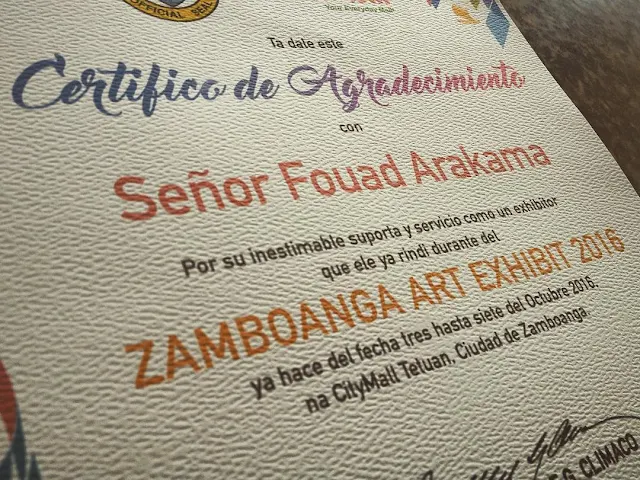While Le Petit Prince (The Little Prince) written by Antoine De Saint-Exupéry in 1943 now has over 300 translations in different languages worldwide and is now considered the world’s most translated book (not counting religious works), there have been surprisingly only two translations of his book in the Philippines (Filipino and Bicol). El Diutay Principe is only the third edition featuring a Philippine language. The Little Prince is a classic French novella about a pilot who gets stranded in the desert after a plane crash and encounters a little fellow who asks him to draw a sheep for him. Through the course of their meeting, the pilot rediscovers the true meaning of life and what people should value the most. When I came across the book in 2013, I found that I could relate very well to the negative image given to “growing up” in the book. When the idea to translate the book into my mother tongue was presented to me, I didn’t think twice. I thought, ‘a lot of people my ...
I was browsing a forum about the latest developments from Zamboanga city when I stumbled upon this photo and I would be crazy not to share it with you.
What makes this photo worth sharing is that this type of document would normally be written in English so this is definitely a big step towards preserving the Chabacano language. First, let me just give you some background information on the photo. Zamboanga city is currently celebrating a month long festival called the Zamboanga Hermosa Festival which climaxes in the Fiesta Pilar. The Fiesta Pilar happens on the feast day of our Lady of the Pillar. The certificate in the photo is a certificate given to exhibitors during the Zamboanga Art Exhibit, one of the activities held in the festival.
What caught my attention in the document was the word certifico. I know! It sounds like a Spanglish word! However, both my dictionaries list the word certifico as the Chabacano word for certificate. The Spanish certificado does not appear in any of these two Chabacano dictionaries. I also did some research on the word certifico and it looks like TV Patrol Chavacano also uses it.
Source: IG: @yeap.fou
What makes this photo worth sharing is that this type of document would normally be written in English so this is definitely a big step towards preserving the Chabacano language. First, let me just give you some background information on the photo. Zamboanga city is currently celebrating a month long festival called the Zamboanga Hermosa Festival which climaxes in the Fiesta Pilar. The Fiesta Pilar happens on the feast day of our Lady of the Pillar. The certificate in the photo is a certificate given to exhibitors during the Zamboanga Art Exhibit, one of the activities held in the festival.
What caught my attention in the document was the word certifico. I know! It sounds like a Spanglish word! However, both my dictionaries list the word certifico as the Chabacano word for certificate. The Spanish certificado does not appear in any of these two Chabacano dictionaries. I also did some research on the word certifico and it looks like TV Patrol Chavacano also uses it.
What is strange is that when I found this old birth certificate, it does look like we were using the word certificado in official documents. Perhaps, we can conclude that certifico is one of those Chabacano words which emerged during the latter half of the 20th century when English fluency in the country was at its height and Spanish fluency was almost non-existent.



el correcto palabra es "CERTIFICADO"... masquen antes ese ya el palabra ta usa kita, especialmente na maga documentos de nacimiento como "Certificado de Nacimiento". pero jendeh se kita ta habla como igual na Castellano "Certificado de Nacio".
ReplyDeleteA birth certificate in Spanish is una "Partida de Nacimiento".
ReplyDeleteCésar Jr.
En el Zamboangueño y Español Filipino se dice "Certificado de Nacimiento/Nacio".
DeleteCreo que cada pais tiene su propia manera de decirlo. Por ejemplo se le llama acta de nacimiento en Mexico. :)
Delete